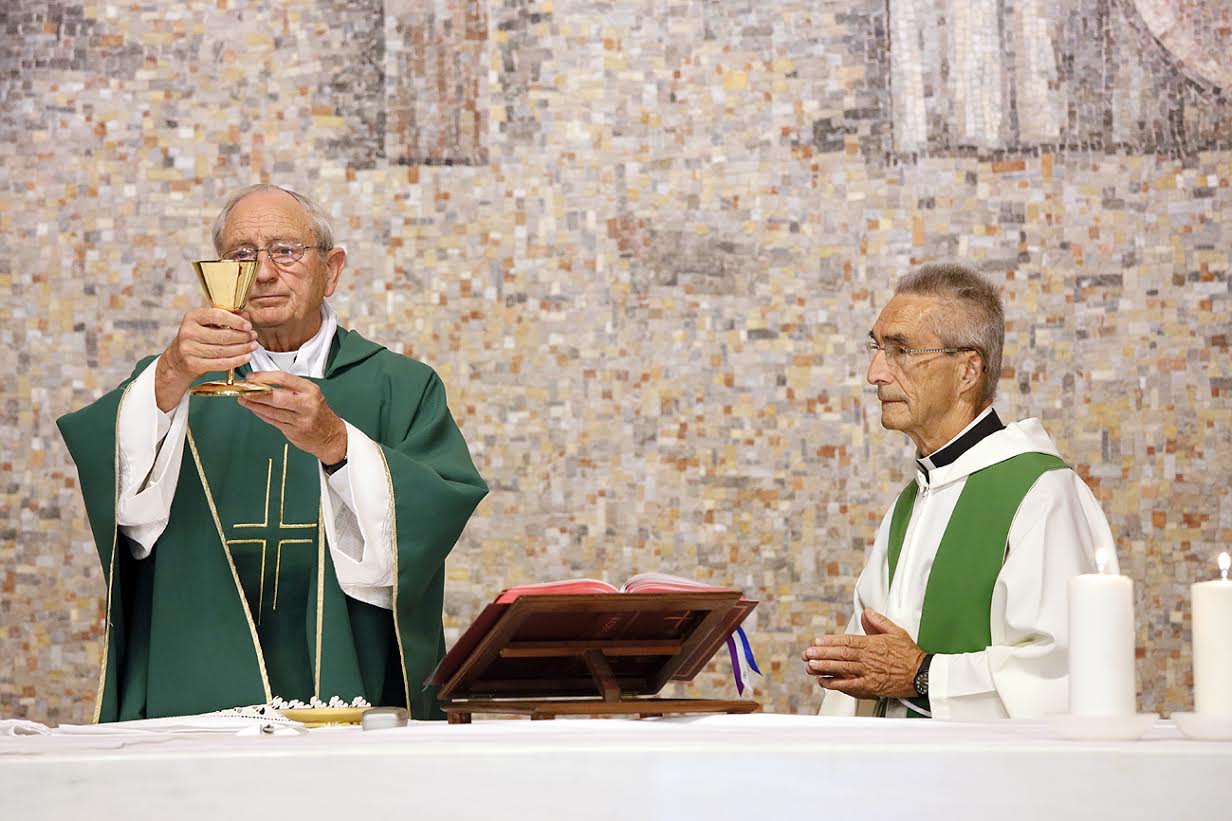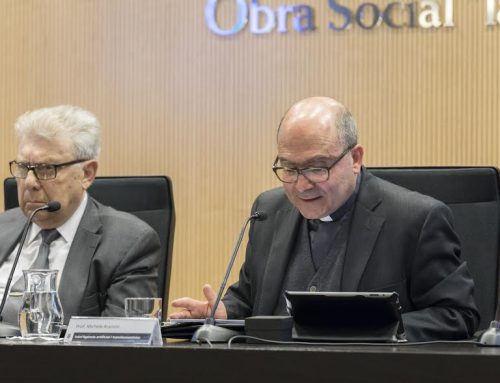
Malcolm Muggeridge entertained Svetalana Alliluyeva- Stalin’s daughter- at his Sussex home in 1989. She had been secretly baptised in the Soviet Union and defected to the USA. At the end of their final long walk together she left a quotation from St. Augustine with him that had helped her so much over the terrible years: “Trust the past to the mercy of God; the present to his love; the future to his providence” (John Stedall, Where on Earth is Heaven?, Hawthorn Press, London, 2009, p. 333). This is a striking encapsulation of love, forgiveness and hope; it is a helpful way of thinking about the meaning of the Resurrection on Easter Sunday morning. The horrible sufferings of Jesus, in his public life, under the constant threat of death, the frightful desolation in Gethsemane and the shocking execution with all its deprivations and insults, are given their ultimate meaning in his Resurrection. Love had triumphed. It had persevered with Mary of Magdala; she had not lost her love for her Rabbuni in his suffering and death. She had not run away. She did not need to be forgiven (Lk 8:23-she had had seven devils driven out of her. She is mentioned by name 12 times in the canonical gospels, more than most of the apostles!). It was different with the apostles; they needed forgiveness; and ever after being forgiven they would live by memory and hope. Their joy was in the present, their past was behind them, their future was in his hands. They had not lost him again when he departed to ‘my Father and yours’; he would be with them always in a new way.
Helpful Examples
They were his witnesses. We would not have known about the life, passion, death and resurrection unless we had the testimony of these truthful witnesses…(cf. Acts 10:39). The evangelists came after them, writing it down, explaining it, and handing it on. The seemingly total failure of love recorded in the Passion was as important as the fidelity recorded afterwards. The apostles had been forgiven even though they had not loved him to the end. Now the truth about everlasting love could be told.
Very little space is given to the immediate post resurrection period with Jesus himself. It is as though all the pieces were in place for what was to follow: the centuries’ long world wide mission, and the final return of Jesus in glory. The texts do not tell us how long it took the apostles to be convinced that they had not seen a ghost, not been misled. How long did it take them to realise the true nature of the Person with whom they had spent the previous years? But, finally convinced, they were totally committed: the whole meaning of history had been revealed to them. This was not a small domestic issue, not a private grief resolved. This was life to the full (Jn 10:10). It was being disclosed that love and forgiveness are the meaning of life itself, everywhere and for everyone. Forgiven themselves these new Christians had to forgive the Pharisees and the High Priests, and the Roman Praetor and the soldiers, all who insulted and mocked their Master. They had to learn to love as he loved. Humility was foundational to this enterprise. The Acts of the Apostles illustrate it perfectly, and nobody more poignantly than St. Paul who told the story against himself. While this approach could have been useful to underwrite Paul’s credibility it could well have diminished affection for him on the part of those who had suffered at his hands. Certainly he was not welcome in Jerusalem after his exploits against the Christians there. Eventually his mission was elsewhere.
The death of Jesus did not leave a legacy of hate for enemies. (Anti-semitism is another story, and the role of Christians in it is shocking). His believers loved him too much to hate; but there was still place for regret. All will have their sins forgiven through his name- but you must regret and say sorry (Acts 10: 43).
The resurrection of Jesus showed those who believed in him what being human truly was. In humanity’s worst circumstances the power of his presence reinforces love and hope and goodness. Alexander Solzhenitsyn serves up a poignant example of this from his days when he was a cancer patient, become Christian, and politically exiled in Kazakhstan after years in prison for privately criticising the tyrant Stalin. Moribund he describes himself thus in his novel Cancer Ward: “Your blood still circulates and your stomach still digests things, but psychologically you have completed all your preparations for death….although you never regarded yourself as a Christian- sometimes, indeed, the opposite- now you suddenly notice that you have forgiven everyone who has insulted you” (Stedall, Op. Cit., p.521). People who have been through the mill and can still write like that are bearing witness to the power of the resurrection of Jesus. This is what Pope Benedict says: “If we attend to the witnesses (who gave us the Gospel) with listening hearts and open ourselves to the signs by which the Lord again and again authenticates both them and himself, then we know that he is truly risen. He is alive. Let us entrust ourselves to him, knowing that we are on the right path. With Thomas let us place our hands into Jesus’ pierced side and confess: “My Lord and my God!”.. (Jesus of Nazareth, Part II, Editrice Vaticana, 2011, p.277). Joseph Ratzinger had suffered and survived the horrors of Nazism; he has the voice of a true witness. To be appreciated during the present crisis.
Conclusion
We can think of the resurrection of Jesus as the world’s celebration of joy based on the supreme realism of what happened and what it all ultimately meant. We trust those who told us of it. We cannot live without trust. The world is a network of confidences based on belief that people ultimately tell the truth and do not want to deceive us. When the corona virus is pervasive we pray. We are helpless. But the medics who care for us are not there to deceive. They exist to help us. It is a parable of life and it does not deceive. Despite all the dis-appointments, all the worries, we do believe that in our human society we are made for each other by God and under God. The resurrection is the absolute statement of this. Jesus was human like us. It was all real in a real world- Palestine then- the resurrection meaning the fullness of life crowned with love and trust and hope and joy. People cried when Jesus died, but nobody cried when he returned to his Father in resurrection. Because he had not left us at all. Unfettered by time and space he is our Emmanuel- God with us. He wipes away all the tears from our eyes. In another season in ordinary language we wish each other a Happy Christmas, but at Easter it is paschal joys! We celebrate as the community of the resurrection and nothing is left out of our vision. The resurrection of Jesus did not take place in a sacristy – it was out there in the ordinary big world of every day. It is in the hospitals, in every decent relationship that expresses loving concern. Here in Boarbank our view over the splendid landscape in glorious spring, trails off to the horizon, up to the skies, and the sun and the stars; the vision is cosmic. We celebrate the love that moves the sun and all the other stars (Dante, Paradiso XXXIII,line144), the harmony of all creation…a new creation- resurrection. That is what we celebrate today. Amen. Happy feast to you all.
Father Richard J.Taylor










